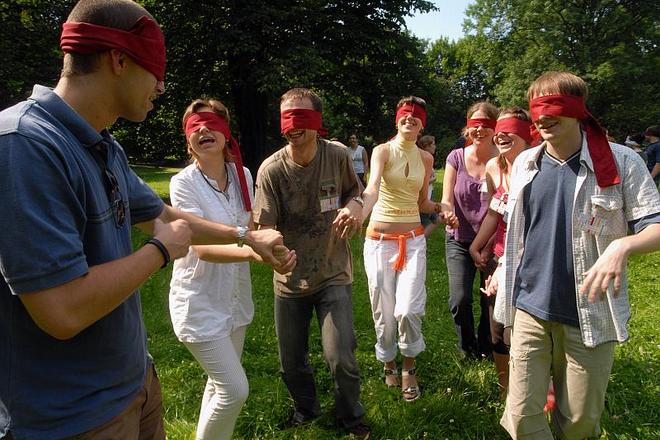IN THE SEARCH for something that might be called ‘the Visegrad spirit’ it is often better to leave the world of high politics and business relations and go to places where the spirit lives among people in their everyday work and interests. Krakow becomes one of such places every year at the start of the summer, when the Visegrad Summer School (VSS) opens its doors for another group of students from all around central and eastern Europe (CEE) to gather in a lovely location just outside the city and spend some days in fruitful discussions.
The Visegrad Summer School, organised annually by the Villa Decius Association in Krakow, has had its eighth edition in 2009, and as such perhaps deserves the status of a traditional event.
Every year about 50 students selected mainly from countries of the Visegrad Group and its eastern and southern neighbours gather in the romantic surroundings of the Villa Decius, a mansion located in the centre of one of Krakow’s historical parks and spend almost two weeks in the company of recognised academics, political analysts, journalists and other regional experts.
Danuta Glondys, the director of Villa Decius, said she started working for the association with the idea of developing a project that would be open for young people from the Visegrad countries. As soon the International Visegrad Fund was created and allocated funds, Glondys and her colleagues came up with the idea of the summer school.
“It is Villa Decius’s biggest international programme, well known in the V4 and Ukraine, Belarus, Russia and other CEE countries,” Glondys told The Slovak Spectator. “Over the years the Visegrad Summer School has become not only a platform for learning, meeting people, promoting cultures but also a school of mutual respect, solidarity and cooperation.”
The topics in the programme relate to society, politics, culture and economy, putting focus on the hottest issues on the public discussion. In 2009, for instance, the participants discussed the missile defence system in Poland and the Czech Republic, the introduction of the European single currency in Slovakia and the political crisis in Hungary in 2008.
Through the years, the school activities have evolved. Now apart from lectures and debates, the students also participate in thematic workshops, simulation games and cultural presentations.
“The special character of the VSS is also created by its participants who discuss, get to know each other, resist national stereotypes and try to build cooperation for the future,” said Glondys.
After their departure from Krakow the VSS participants usually say they appreciated the networking and socialising opportunities the school gave them, as well as the possibility to look at the world and the Visegrad region from different perspectives.
According to Kasia, a 2009 participant from Poland, the atmosphere of the VSS shows how close the countries in the region really are to each other.
“The most important knowledge I gained was that we Polish, Hungarians, Czechs and Slovaks have common interests in a lot of areas as well as common heritage and common way of thinking,” she said.
Perhaps because of this kind of spirit the International Visegrad Fund proudly calls the VSS its flagship programme.
“But it’s not all cake and ice cream at the school,” Jiří Sýkora, the IVF Public Relations Coordinator, told The Slovak Spectator. “Every year our students engage in lively discussions. Sometimes they disagree. Sometimes they argue. But always it brings meaningful debate.”
Rafał Słomka contributed to this report.
The piece is part of the Visegrad Countries Special, prepared by The Slovak Spectator with the support of the International Visegrad Fund. For more information on cooperation between the Czech Republic, Hungary, Poland and Slovakia please see the following document.



 Unconventional learning methods at the VSS (source: Courtesy of Villa Decius)
Unconventional learning methods at the VSS (source: Courtesy of Villa Decius)